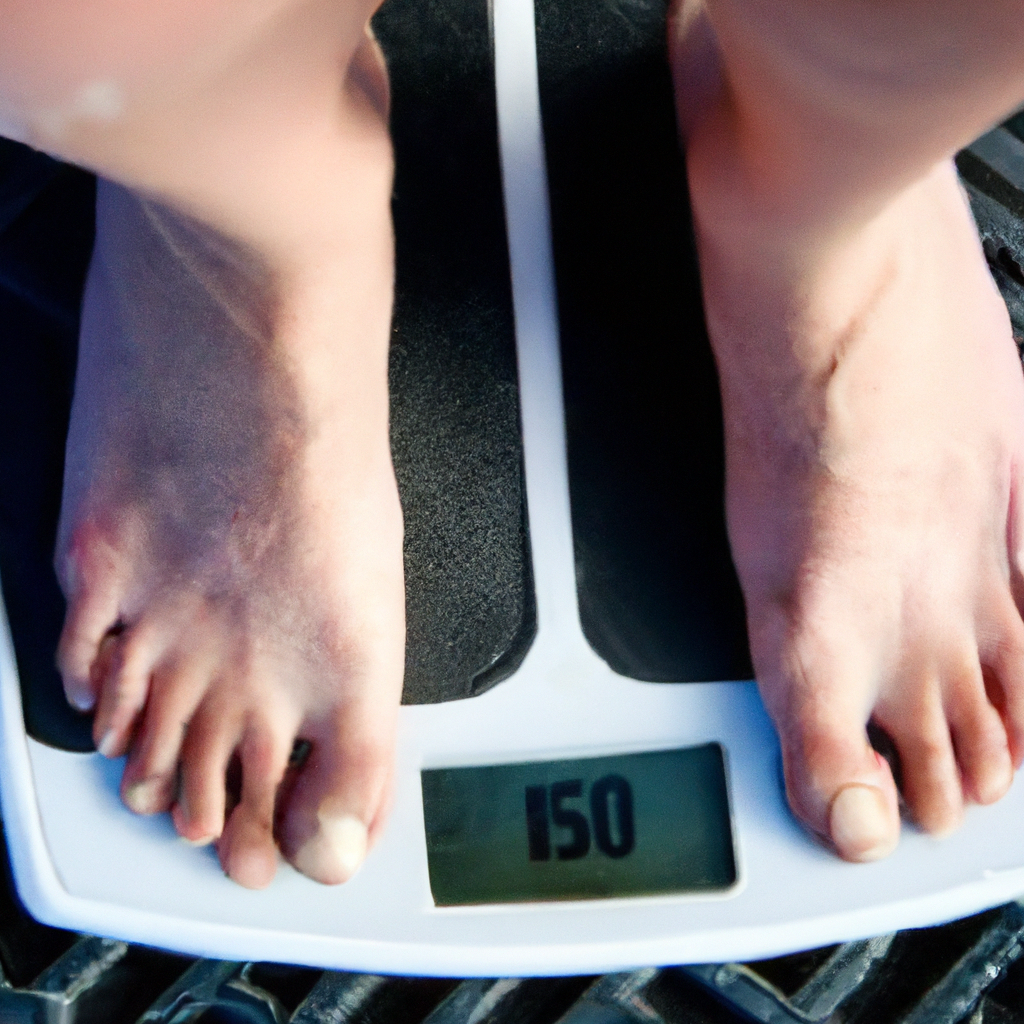Feel Your Best: The Positive Impact Of Weight Loss On Mood And Self-Esteem
Discover the incredible power of weight loss in boosting your mood and self-esteem. Shedding those extra pounds can have a profoundly positive impact on both your mental and emotional wellbeing. Through this transformative process, not only will you experience increased confidence and a boost in self-image, but you will also find a renewed sense of happiness and contentment. Discover the mental and emotional benefits of weight loss, explore the pros and cons, and delve into the factors that have the greatest impact on achieving your weight loss goals. Get ready to unlock your full potential and feel your absolute best.

Benefits of Weight Loss on Mood
Losing weight can have numerous positive effects on your mood and overall well-being. One of the most significant benefits is the reduced symptoms of depression. Studies have shown that losing excess weight can lead to an improvement in depressive symptoms. This may be due to various factors, including increased self-confidence and improved body image perception.
In addition to reducing depression symptoms, losing weight can also increase your overall happiness. When you shed those extra pounds, you may experience a boost in your mood and a greater sense of contentment. This can be attributed to the feeling of accomplishment and the positive changes you see in your body and overall health.
Another notable benefit of weight loss is improved energy levels. Carrying excess weight can put a strain on your body, making you feel sluggish and fatigued. However, by shedding those extra pounds, you can experience a significant increase in your energy levels. This newfound energy can help you feel more motivated and engaged in your daily activities.
Furthermore, weight loss can have a positive impact on your sleep quality. Obesity has been linked to sleep disorders such as sleep apnea and insomnia. Losing weight can alleviate these issues and promote better sleep. Improved sleep quality can improve your overall mood and contribute to a more positive outlook on life.
Lastly, weight loss can boost your self-confidence. As you shed pounds and start to see positive changes in your body, you may feel more confident in your appearance. This increased self-confidence can have a ripple effect on various aspects of your life, from personal relationships to professional success.
Effects of Weight Loss on Self-Esteem
Weight loss can significantly improve your self-esteem and how you perceive your body. One of the most notable effects is an improved body image perception. When you lose weight, you may start to feel more comfortable and satisfied with your physical appearance. This positive shift in body image can have a profound impact on your self-esteem.
In addition to improving body image, weight loss can also increase your self-worth. As you commit to a healthy lifestyle and attain your weight loss goals, you may develop a greater sense of self-worth and accomplishment. This newfound confidence in your abilities can spill over into other areas of your life, empowering you to take on challenges and pursue your dreams.
Another effect of weight loss on self-esteem is a greater sense of accomplishment. Achieving weight loss requires dedication, discipline, and perseverance. By successfully losing weight, you can develop a strong sense of achievement, knowing that you worked hard and overcame obstacles to reach your goals.
Furthermore, weight loss can enhance your social interactions. As you become more confident in your appearance and overall well-being, you may notice an improvement in your relationships. Increased self-esteem can make it easier to connect with others, engage in social activities, and form meaningful connections.
Moreover, weight loss can reduce self-consciousness. When you carry excess weight, you may feel self-conscious about your body and appearance. However, as you shed pounds, you may feel more comfortable and at ease in social situations. This reduction in self-consciousness can lead to greater self-esteem and a more positive outlook.
Positive Impact on Mental Health
Weight loss can have a profound positive impact on your mental health. One of the significant benefits is a reduction in anxiety levels. Excess weight can contribute to feelings of anxiety and stress. However, losing weight can alleviate these symptoms and help you feel calmer and more at ease.
In addition to reducing anxiety, weight loss can improve your stress management skills. Engaging in regular exercise and maintaining a healthy diet are essential components of weight loss. These activities can help manage stress and enhance your ability to cope with daily challenges.
Furthermore, weight loss can enhance cognitive function. Studies have shown that losing weight can improve memory, attention, and overall cognitive performance. This enhanced cognitive function can lead to increased focus and clarity, allowing you to be more productive in your personal and professional endeavors.
Moreover, weight loss can contribute to greater emotional stability. When you are overweight, you may be more prone to mood swings and emotional fluctuations. However, losing weight can help stabilize your emotions, leading to a more balanced and positive emotional state.
Additionally, weight loss can lead to an overall elevated mood and increased happiness. Shedding excess weight can boost your self-esteem, improve your body acceptance, and reduce psychological distress. These factors combined can contribute to a significant improvement in your mood and overall well-being.

Mental and Emotional Benefits
Weight loss is not just about physical changes; it can also have profound mental and emotional benefits. One of the most notable benefits is an elevated mood and overall happiness. Losing weight and experiencing positive changes in your body can significantly improve your mood, leaving you feeling happier and more content in your daily life.
In addition to an elevated mood, weight loss can increase your self-awareness. As you embark on your weight loss journey, you become more in tune with your body and its needs. This increased self-awareness can extend beyond your weight loss goals, allowing you to make healthier choices in all aspects of your life.
Furthermore, weight loss can boost your self-esteem and self-confidence. As you achieve your weight loss goals, you develop a sense of pride and accomplishment. This newfound confidence can positively impact how you perceive yourself and how you navigate various situations in life.
Another mental and emotional benefit of weight loss is improved body acceptance. Losing weight can help you cultivate a more positive relationship with your body, accepting and appreciating it for what it is. This shift in mindset can lead to reduced self-criticism and improved overall body image.
Moreover, weight loss can alleviate psychological distress. Carrying excess weight can contribute to feelings of guilt, shame, and low self-worth. However, by shedding those extra pounds, you can experience a reduction in psychological distress, leading to a greater sense of well-being and inner peace.
Pros of Weight Loss
Weight loss offers a multitude of pros that can significantly improve your overall health and well-being. One of the most significant benefits is improved physical health. By shedding excess weight, you can reduce the strain on your joints and organs, leading to improved overall health and reduced risk of chronic diseases.
In addition to improved physical health, weight loss can enhance your mobility and flexibility. Carrying excess weight can limit your range of motion and make physical activities challenging. However, losing weight can improve your mobility, allowing you to engage in various activities and movements with greater ease.
Furthermore, weight loss can greatly reduce the risk of chronic diseases. Conditions such as heart disease, diabetes, and high blood pressure are often linked to obesity. However, by taking steps towards weight loss, you can significantly decrease the likelihood of developing these chronic conditions and improve your overall health.
Moreover, weight loss is associated with increased longevity. Studies have shown that maintaining a healthy weight can contribute to a longer lifespan. By losing weight and adopting a healthy lifestyle, you can increase your chances of living a long and fulfilling life.
Additionally, weight loss can greatly improve your quality of life. Shedding excess pounds can lead to increased energy levels, improved sleep quality, and enhanced overall well-being. These improvements can have a profound impact on your daily life, allowing you to engage in activities you enjoy and experience a higher level of life satisfaction.
Cons of Weight Loss
While weight loss has numerous benefits, it is important to acknowledge that there are potential challenges and drawbacks as well. One of the potential cons of weight loss is the possibility of muscle loss. When engaging in weight loss, it is important to incorporate strength training exercises to preserve muscle mass.
In addition to potential muscle loss, weight loss may also result in temporary hair loss. This can occur as a result of nutritional deficiencies or the body’s response to the stress of weight loss. It is essential to maintain a balanced and nutrient-rich diet to minimize this potential side effect.
Furthermore, weight loss can present psychological challenges. As you embark on your weight loss journey, you may face emotional hurdles such as self-doubt, body image issues, and fear of failure. It is important to address these challenges through self-care practices, support systems, and professional guidance, if needed.
Moreover, weight loss can lead to metabolic adaptations. When you lose weight, your body may adjust its metabolism in an attempt to conserve energy. This can result in a plateau in your weight loss progress. It is important to adapt your diet and exercise routine to accommodate these metabolic changes.
Additionally, weight loss is not a one-time achievement, and there is a possibility of weight regain. After losing weight, it is crucial to maintain healthy habits and continue to prioritize your well-being. Without ongoing dedication and adherence to a healthy lifestyle, weight regain is possible.
Lifestyle Enhancements and Life Improvements
Weight loss can bring about various lifestyle enhancements and improvements. One of the notable benefits is increased energy for daily activities. Shedding excess weight can alleviate the strain on your body, allowing you to have more energy for everyday tasks and responsibilities.
In addition to increased energy, weight loss can improve your ability to engage in hobbies and interests. Carrying excess weight can limit your physical capabilities and restrict your participation in certain activities. However, losing weight can enhance your mobility and enable you to pursue hobbies that bring you joy and fulfillment.
Furthermore, weight loss can lead to better physical performance in sports or fitness activities. As you shed those extra pounds, you may notice an improvement in your athletic abilities and overall physical performance. This can be incredibly rewarding and encourage you to further engage in physical activities.
Moreover, weight loss can have a positive impact on your personal and professional relationships. As you become more confident and comfortable in your body, you may find it easier to connect with others and form meaningful connections. Improved self-esteem and a positive body image can contribute to healthier and more fulfilling relationships.
Additionally, weight loss can enhance your overall life satisfaction. By prioritizing your health and well-being, you can experience a greater sense of fulfillment and happiness in your life. Weight loss can improve your physical, emotional, and mental well-being, leading to an enhanced overall quality of life.
Personality Changes after Weight Loss
Weight loss can bring about significant personality changes that can positively impact various aspects of your life. One of the notable changes is increased self-discipline and motivation. Achieving weight loss goals requires dedication and consistency, which can foster the development of self-discipline and motivation.
In addition to increased self-discipline, weight loss can improve your resilience and determination. The journey towards weight loss may involve setbacks and obstacles, but by persevering and staying committed, you can develop a stronger sense of resilience and determination. These qualities can be applied to other areas of your life, allowing you to overcome challenges and achieve success.
Furthermore, weight loss can lead to enhanced self-care practices. Prioritizing your health and well-being through weight loss can instill a greater sense of self-care. This can include nourishing your body through healthy food choices, engaging in regular exercise, and practicing self-care activities that promote mental and emotional well-being.
Moreover, weight loss can foster greater self-awareness and introspection. As you embark on your weight loss journey, you become more attuned to your body’s needs and signals. This heightened self-awareness can extend beyond physical health, allowing you to make more informed choices and decisions in all aspects of your life.
Additionally, weight loss can help you develop healthier coping mechanisms. Many individuals turn to food as a source of comfort or stress relief, but through weight loss, you can cultivate healthier coping strategies. This can include engaging in activities such as exercise, meditation, or seeking support from loved ones during challenging times.
Weight Loss and Attractiveness
Weight loss can have a significant impact on your attractiveness, both in terms of physical appearance and overall self-perception. One of the most noticeable changes is an improved physical appearance. Losing weight can lead to a more toned and defined physique, which can enhance your overall attractiveness.
In addition to improved physical appearance, weight loss can increase your body confidence. Shedding excess weight and experiencing positive changes in your body can boost your self-esteem and make you feel more comfortable and confident in your own skin. This newfound body confidence can radiate through your presence and interactions with others.
Furthermore, weight loss can enhance your charisma and presence. When you feel good about yourself and are confident in your appearance, it can positively impact how you carry yourself and interact with others. This enhanced charisma can make you more approachable and attractive to others.
Moreover, weight loss can have a positive impact on romantic relationships. When you feel confident and attractive, it can improve your connection with your partner. Additionally, weight loss can lead to improved physical intimacy, boosting overall relationship satisfaction.
Additionally, weight loss can enhance your overall self-perception. As you achieve your weight loss goals and experience positive changes in your body, you may develop a more positive self-image. This increased self-perception can have a profound impact on your overall attractiveness and how you present yourself to the world.
Factors Influencing Weight Loss Success
Several factors contribute to weight loss success. Adherence to a healthy diet is crucial for achieving and maintaining weight loss. A balanced and nutrient-rich diet, consisting of whole foods, can provide the necessary fuel for your body and support your weight loss goals.
Regular physical activity is another essential factor in weight loss success. Engaging in regular exercise promotes calorie burn, helps build lean muscle mass, and increases metabolism. Combining cardiovascular exercises with strength training can maximize weight loss results.
Behavioral changes and habit formation are also pivotal in achieving sustainable weight loss. Making long-term changes to your lifestyle, such as incorporating healthier food choices and establishing regular exercise routines, can help you maintain weight loss and prevent weight regain.
Furthermore, social support and accountability play a significant role in weight loss success. Surrounding yourself with a supportive network of friends, family, or even joining a weight loss group can provide motivation, encouragement, and accountability throughout your journey.
Finally, mindset and motivation are essential for weight loss success. Having a positive mindset, setting realistic goals, and staying motivated can greatly influence your ability to achieve and maintain weight loss. Cultivating a mindset focused on self-care and long-term health can help you overcome challenges and stay on track towards your goals.
In conclusion, weight loss can have a transformative effect on both your mood and self-esteem. The benefits of weight loss extend beyond physical changes, encompassing a positive impact on mental health, improved self-esteem, and enhanced well-being. While there may be potential challenges and drawbacks, the overall improvements in physical, mental, and emotional health make weight loss a worthwhile journey. By focusing on factors such as a healthy diet, regular physical activity, behavioral changes, social support, and maintaining the right mindset, you can experience the multitude of benefits that come with achieving and maintaining a healthy weight. Remember, the journey towards weight loss is not just about shedding pounds; it is about embracing a lifestyle that prioritizes your well-being, leading to a happier, more fulfilling life.


Pingback: Stay The Course: Overcoming Obstacles For Lasting Weight Loss Motivation